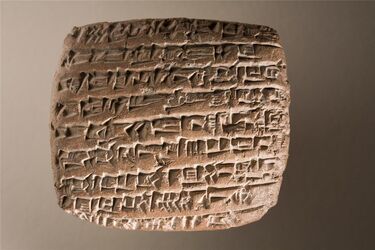Scientists investigate the cause of the collapse of the Akkadian Empire in Mesopotamia

The greatness of the ancient civilization that emerged in Mesopotamia between 2334 and 2218 B.C. during the reign of the legendary Sargon the Great changed the course of historical events in the region. Before Sargon's arrival, this territory was divided into separate city-states that existed separately from each other. It was Sargon who united them under a single flag, bringing them to the negotiating table. This act not only immortalized the name of Sargon in the chronicles, but also became an example for subsequent empires, showing the way to unite different regions. This is reported by IFL.Science.
The exact location of the capital of the Akkadian Empire, the city of Akkad, is still a mystery to historians and archaeologists. It is believed that it was located along the Euphrates River, but its specific location is the subject of scientific debate. Despite the uncertainty of this issue, the influence of Akkad was undeniable. The Sargon's empire stretched from the Persian Gulf to the Mediterranean Sea, possibly even reaching the island of Crete. This state brought a golden age of trade, art, science, and introduced a pearl of innovation - the world's first postal system, in which messages were sent on clay tablets wrapped in a layer of clay.
At the heart of the empire stood Sargon, a leader who valued loyalty. He appointed trustees to key positions, including his daughter Enkheduanna, who went down in history as the first known author of world literature. Sargon's reign lasted 56 years, and his successors, despite uprisings and internal disputes, continued to expand the empire's borders. One of the most prominent rulers was Sargon's grandson Naram-Sin, known for his military victories, but his pride, according to legend, angered the gods and became the harbinger of the fall of the entire empire.
Also read: Village found in England that disappeared 500 years ago for unknown reasons
However, research indicates that the real cause of the Akkadian Empire's collapse may have been climate change, an ancient environmental crisis that likely caused famine, disrupting trade routes and undermining the foundations of the empire. As a result, Akkad found it difficult to resist rebellions and invasions. The last rulers, Dudu and Shu-Turel, watched their influence wane and the once great city disappeared from the pages of history, leaving behind a legacy of unity, innovation, and a reminder of the power of nature.
As a reminder, scientists have discovered what diseases killed thousands of people in the Neolithic era.
If you want to get the latest news about the war and events in Ukraine, subscribe to our Telegram channel!
